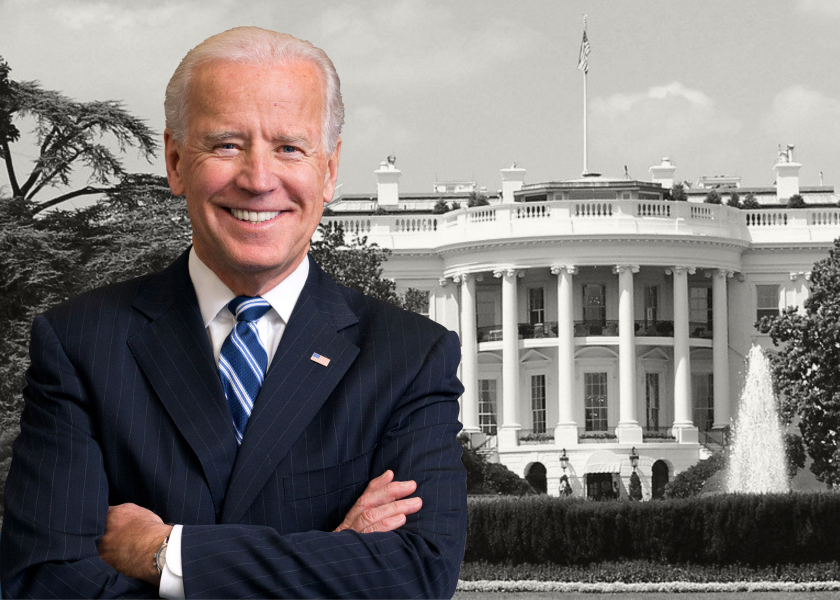President Biden lauds Bipartisan Infrastructure Framework

President Joe Biden said on June 24 that the White House has struck a deal on what he called the Bipartisan Infrastructure Framework.
“We’ve struck a deal,” Biden said on his Twitter account. “A group of senators – five Democrats and five Republicans – has come together and forged an infrastructure agreement that will create millions of American jobs.”
According to Biden, the bipartisan agreement represents the largest investment in public transit in American history, giving the largest investment in rail since the creation of Amtrak.
The White House said the $1.2 trillion Bipartisan Infrastructure Framework is a “critical step” in implementing President Biden’s Build Back Better vision.
The plan, the White House said, makes “transformational and historic” investments in clean transportation infrastructure, clean water infrastructure, universal broadband infrastructure, clean power infrastructure, remediation of legacy pollution, and resilience to the changing climate.
The White House said the Bipartisan Infrastructure Framework will:
- Improve healthy, sustainable transportation options for millions of Americans by modernizing and expanding transit and rail networks across the country, while reducing greenhouse gas emissions. The Plan is the largest federal investment in public transit in history and is the largest federal investment in passenger rail since the creation of Amtrak.
- Repair and rebuild our roads and bridges with a focus on climate change mitigation, resilience, equity, and safety for all users, including cyclists and pedestrians. The Bipartisan Infrastructure Framework is the single largest dedicated bridge investment since the construction of the interstate highway system.
- Build a national network of electric vehicle (EV) chargers along highways and in rural and disadvantaged communities. The largest investment in EV infrastructure in history, the Bipartisan Infrastructure Framework will accomplish the President’s goal of building 500,000 EV chargers.
- Electrify thousands of school and transit buses across the country to reduce harmful emissions and drive domestic manufacturing of zero emission vehicles and components.
- Eliminate the nation’s lead service lines and pipes, delivering clean drinking water to up to ten million American families and more than 400,000 schools and childcare facilities that currently don’t have it, including in Tribal nations and disadvantaged communities. The Plan is the largest investment in clean drinking water and wastewater infrastructure in American history.
- Connect every American to reliable high-speed internet, just as the federal government made a historic effort to provide electricity to every American nearly one hundred years ago. The Framework will also drive down prices for internet service and close the digital divide.
- Upgrade our power infrastructure, including by building thousands of miles of new, resilient transmission lines to facilitate the expansion of renewable energy, including through a new Grid Authority. The Plan is the single largest investment in clean energy transmission in American history.
- Create a first of its kind Infrastructure Financing Authority that will leverage billions of dollars into clean transportation and clean energy.
- Make the largest investment in addressing legacy pollution in American history, a cleanup effort that will create good-paying union jobs and advance environmental justice.
- Prepare more of our infrastructure for the impacts of climate change, cyber-attacks, and extreme weather events. The Framework is the largest investment in the resilience of physical and natural systems in American history.
- The Framework, which will generate significant economic benefits and returns, is financed through a combination of closing the tax gap, redirecting unspent emergency relief funds, targeted corporate user fees, and the macroeconomic impact of infrastructure investment.
Bipartisan Infrastructure Framework
Amount (billions)
Total $579
Transportation $312
Roads, bridges, major projects $109
Safety $11
Public transit $49
Passenger and Freight Rail $66
EV infrastructure $7.5
Electric buses / transit $7.5
Reconnecting communities $1
Airports $25
Ports & Waterways $16
Infrastructure Financing $20
Other Infrastructure $266
Water infrastructure $55
Broadband infrastructure $65
Environmental remediation $21
Power infrastructure incl. grid authority $73
Western Water Storage $5
Resilience $47
*New spending + baseline (over 5 years) = $973B
*New spending + baseline (over 8 years) = $1,209B
Proposed Financing Sources for New Investment
- Reduce the IRS tax gap
- Unemployment insurance program integrity
- Redirect unused unemployment insurance relief funds
- Repurpose unused relief funds from 2020 emergency relief legislation
- State and local investment in broadband infrastructure
- Allow states to sell or purchase unused toll credits for infrastructure
- Extend expiring customs user fees
- Reinstate Superfund fees for chemicals
- 5G spectrum auction proceeds
- Extend mandatory sequester
- Strategic petroleum reserve sale
- Public-private partnerships, private activity bonds, direct pay bonds and asset recycling for infrastructure investment; and
- Macroeconomic impact of infrastructure investment







